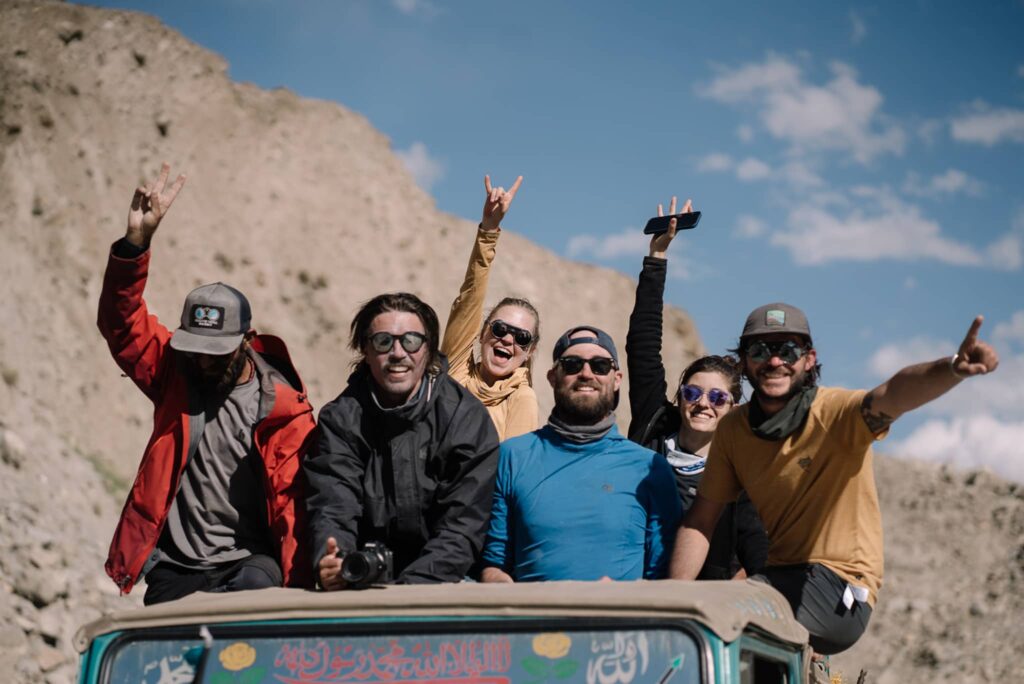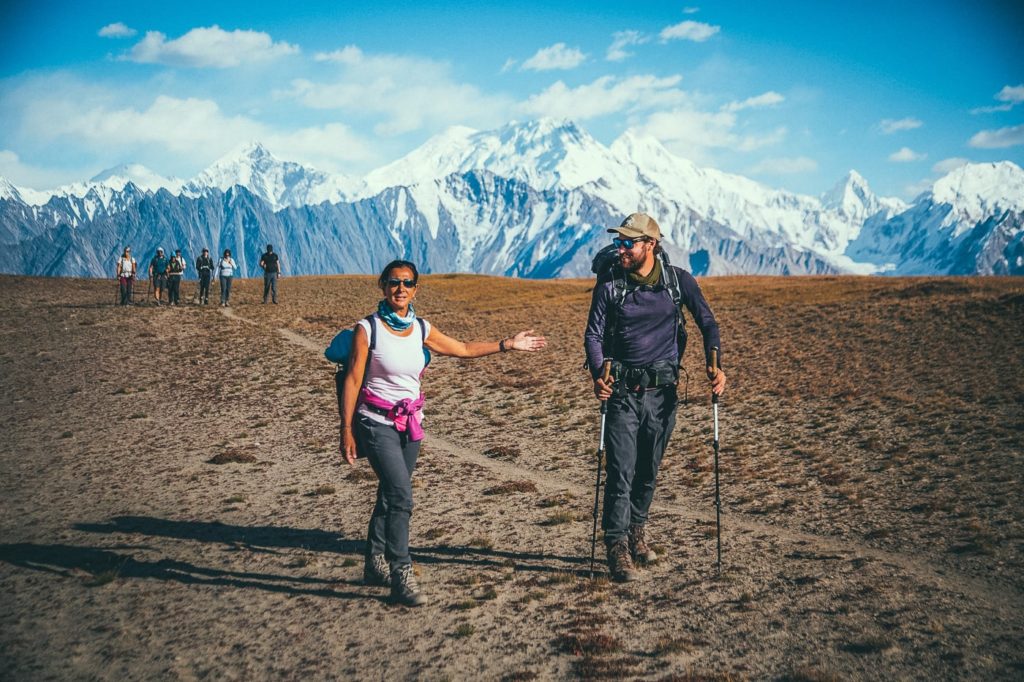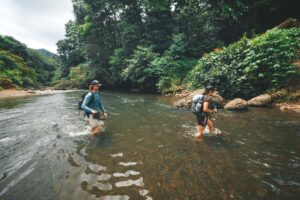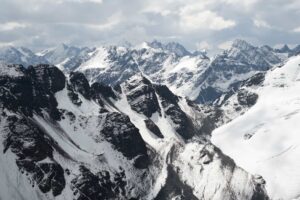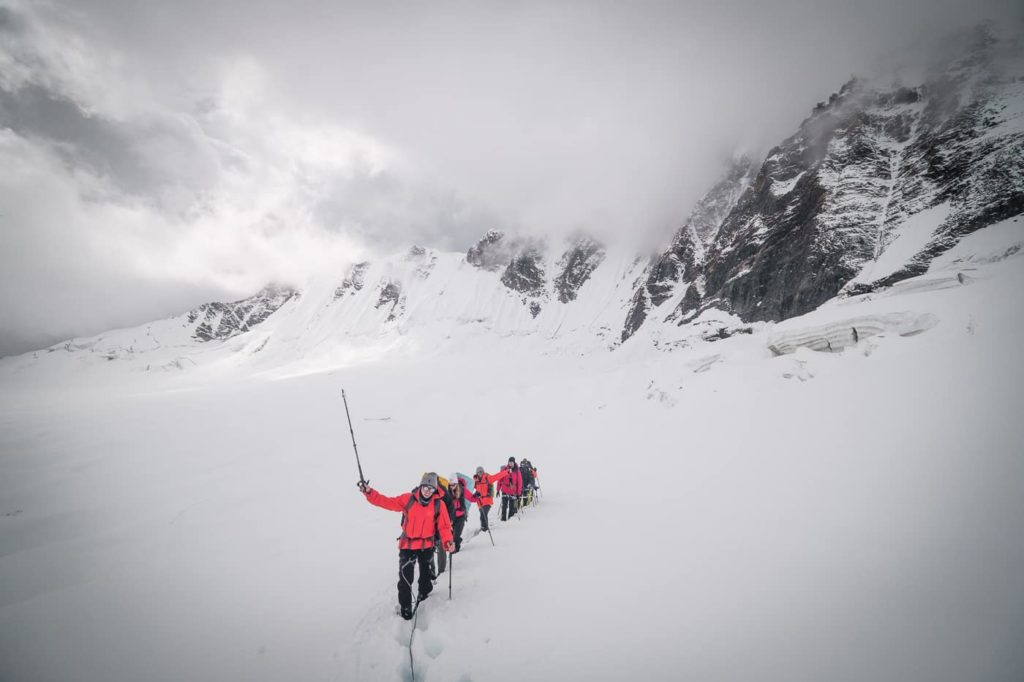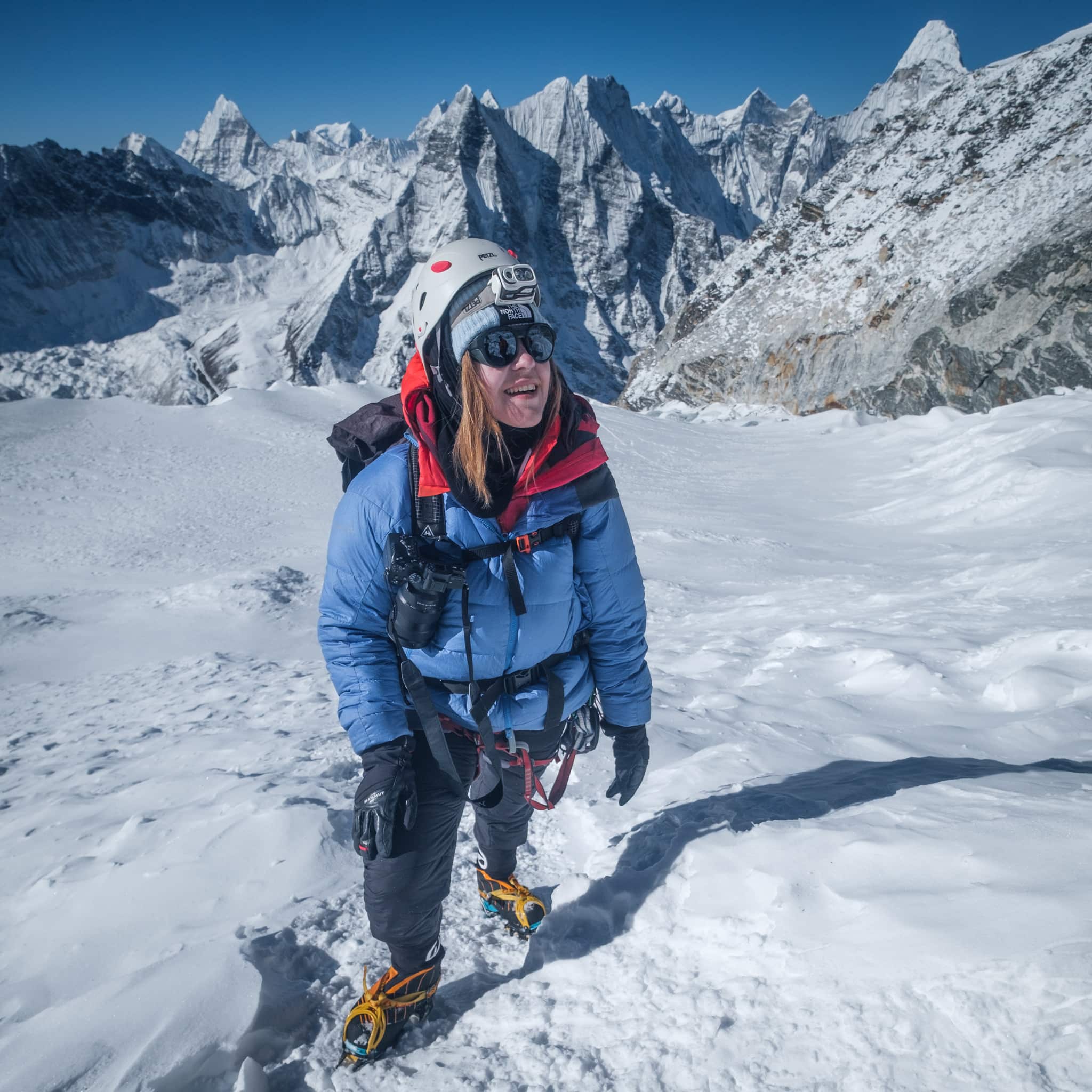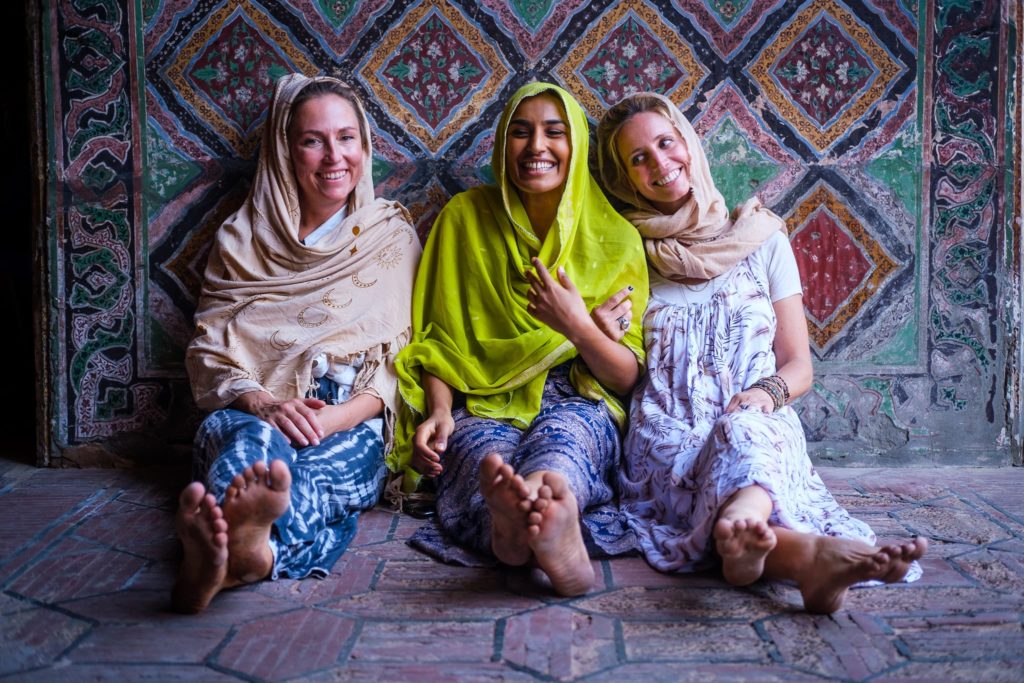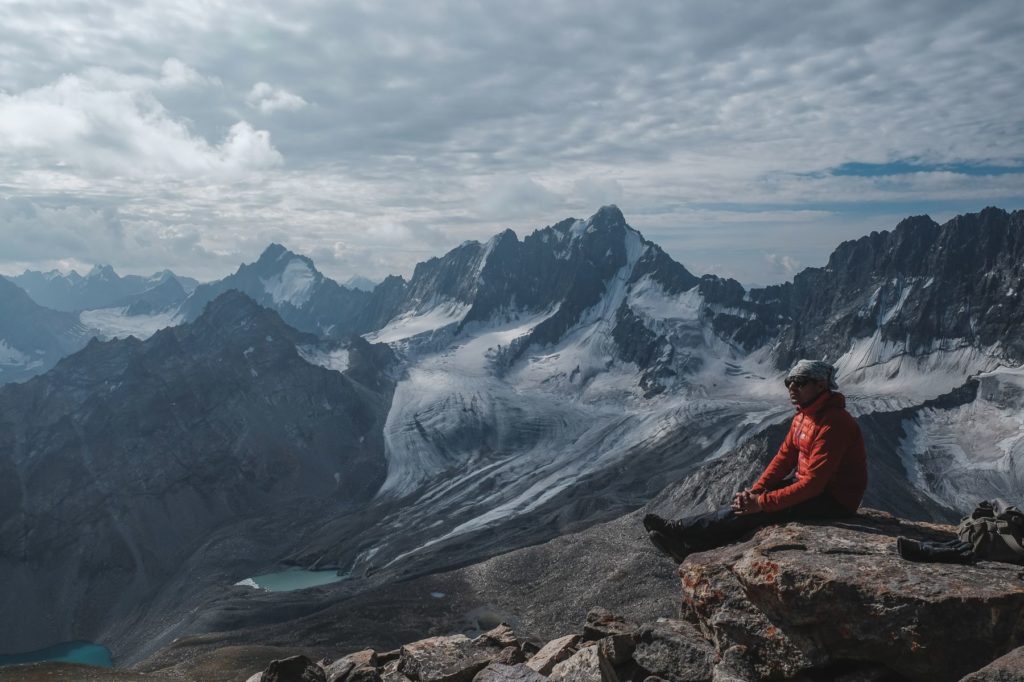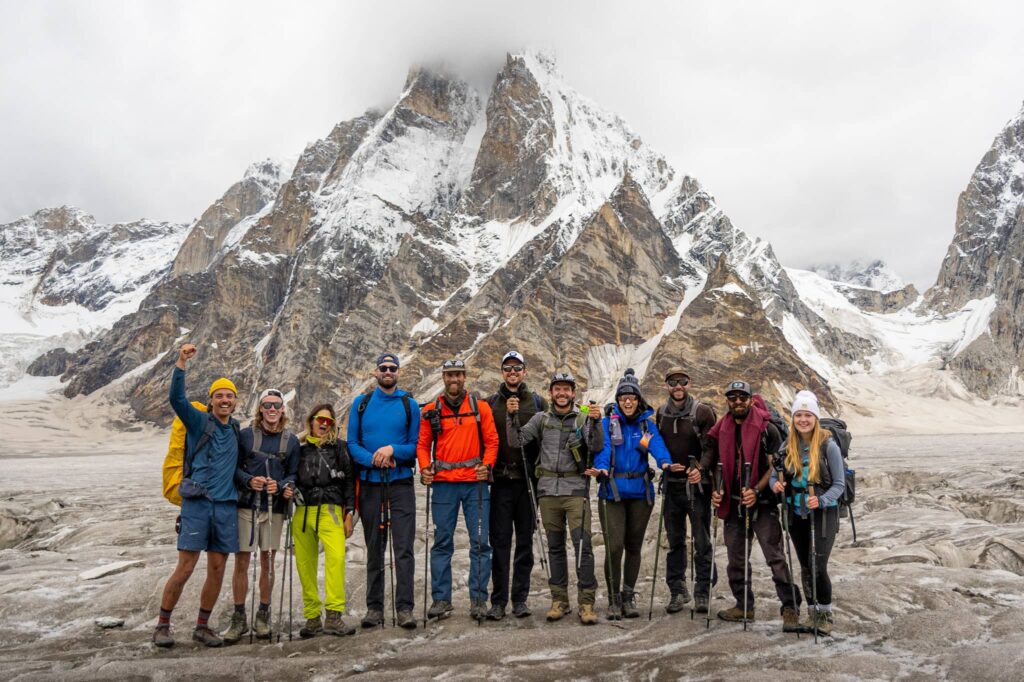A few times a season, we get asked by people keen on joining one of our adventures: “Is Pakistan Safe?”.
The answer to that question usually involves a 10-minute conversation by phone with our adventure consultant staff.
Pakistan is a beautiful, complex, and nuanced – as it the saftey question surrounding Pakistan.
Despite what Western media (and governments) might say, Pakistan as a whole is one of the safest countries we have ever been too – and we can proudly say that after running trips here for seven years that YES – Pakistan is a safe country to visit. That said, no country on earth is perfect and there is plenty of stuff you should know before traveling here.
Below, we will cover the whole range of topics surrounding safe travel in Pakistan. By the end of this article, you should arrive at the answer to the question is Pakistan safe or should this country be on your no-go list…
Pakistan Travel Advisories
You might be thinking “but my government is recommending against travel to Pakistan and you tell me it is safe. Why is that?”.
While it is true that many Western governments have classified certain regions of Pakistan as “do not travel” zones – these places are mostly border areas with Afghanistan and Iran – and are geographically very far from where our trips go and where the vast majority of tourists interested in culture or trekking are traveling to.
And Pakistan is huge! Understanding the geography and what areas are considered risky and what areas are considered totally safe is essential to understanding Pakistan and travel here.
While we also would not recommend traveling super close to the border with Iran in the very south of Pakistan – the regions of Northern Pakistan- where all the big mountains are – rank among the safest regions of the country – with incidents involving foreigners at basically zero for the last 10 years.
Deep in the Karakoram range near K2 Base Camp as an example – the border with China and India is literally separated by 7000 and 8000-meter peaks – so we find it highly unlikely that China will invade Pakistan from the north side of K2.
Our advice is to think twice before traveling to “sensitive” border areas and use common sense.
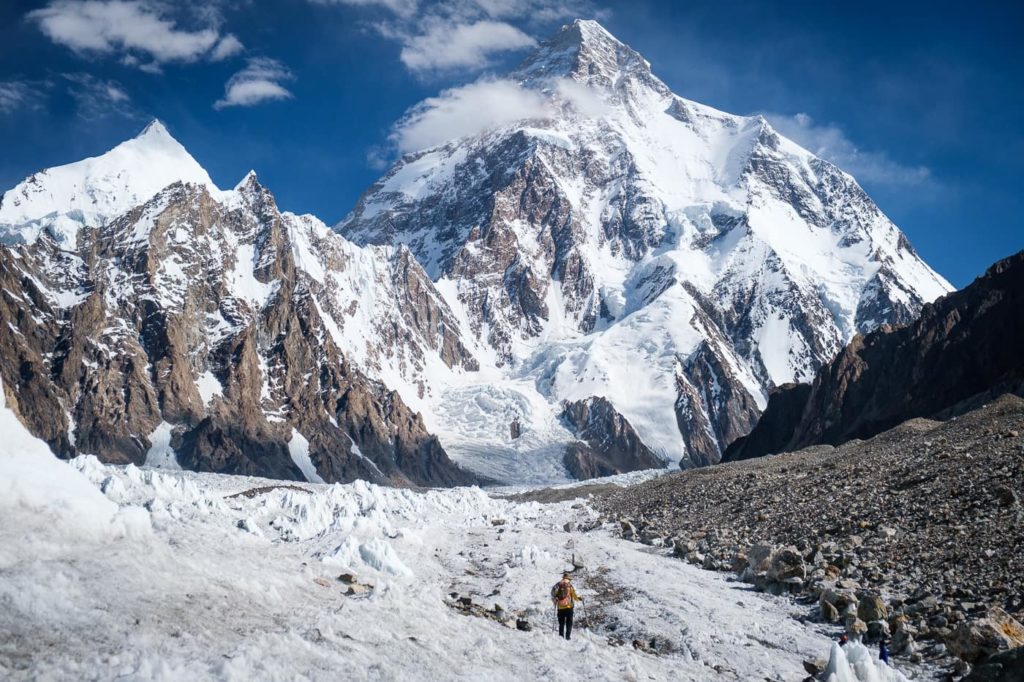
Is Pakistan Safe for Solo Women Travelers?
Pakistan is a country where men dominate society and once you leave the cities they are just generally less local women around.
Things are slowly changing in Pakistan with regard to women being more visible in Pakistani society, especially among the educated classes. That said, traveling in Pakistan as a foreign woman is very safe if you take some common sense steps to protect yourself as you would in any country.
Solo women make up around 50% of our tours typically and in 7 years of running tours in Pakistan we have never had a woman on one of our trips experience a serious incident.
In general, most Pakistani men are respectful and welcoming to foreign women. Like in any country though, there are always men who will at least attempt to act inappropriately and get away with it. This is more of a global problem though versus a Pakistan-only problem
And it should be noted too that you do not need to join a group tour (although it is more fun, and we hope you do!) to experience Pakistan safely as a solo female traveler.
The feedback we have received – both from our own clients and from friends who have traveled solo all across Pakistan – female travelers in general feel more safe walking down the street in Islamabad or Lahore at night versus in Paris or New York City.
Safety on our trips is obviously the top priority of Epic staff – and we do everything we can to ensure a safe and welcoming involvement for all of our clients – men and women.
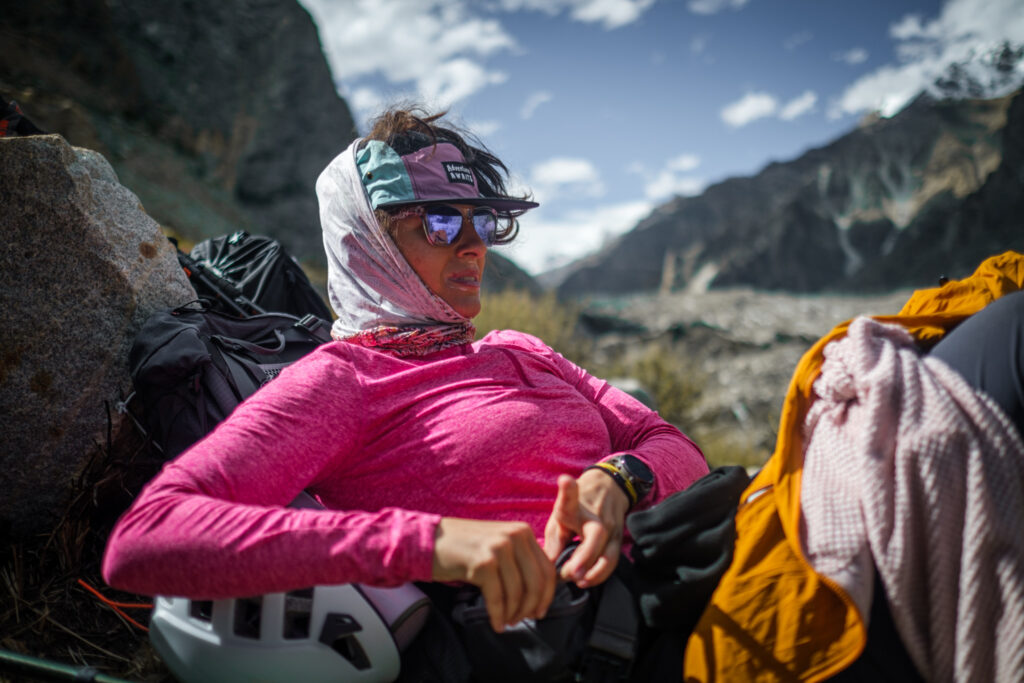
Is Pakistan Safe for Trekking?
One of the main reasons to visit Pakistan is that it is a world-class trekking destination. Like Nepal, Pakistan is home to some of the tallest mountains on earth.
The trekking adventure possibilities in Pakistan are truly endless.
Certain parts of Northern Pakistan (like the K2 area) require special permits to enter as they are controlled by the army. The army is not there because there is an inherent safety risk – but more because the borders of China and India are relatively close – even if they are separated by the huge mountain ranges mentioned earlier.
While the bureaucracy required to go to some of these more remote areas is annoying – it also adds another layer of security for trekkers as the authorities really control the area and know exactly who is coming in and out at all times.
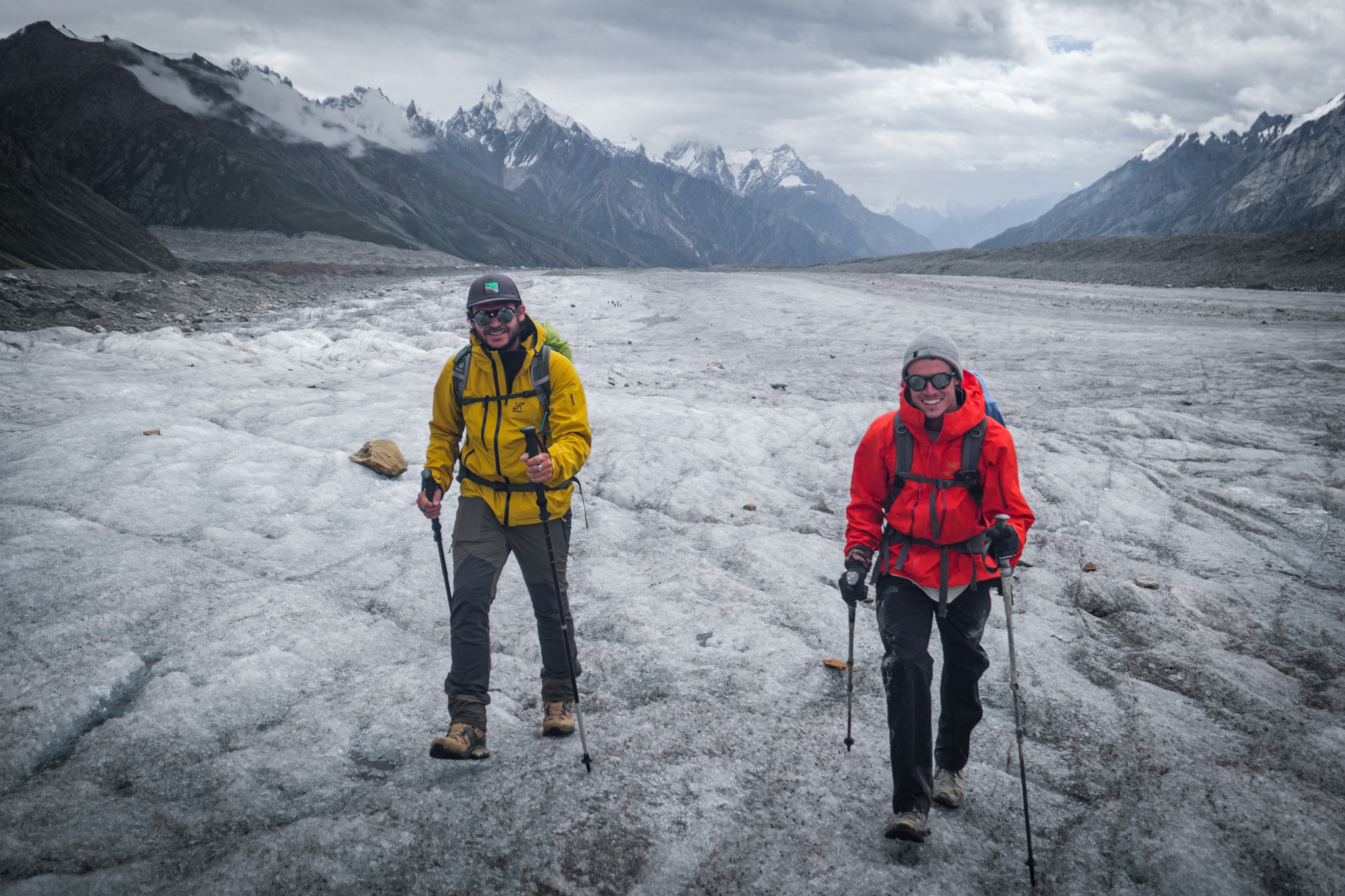
Inherent Hazards of Trekking in Pakistan
Mountains are inherently dangerous for many reasons. Mountains are wild, unpredictable, and when you go trekking one needs to be mindful of the risks involved.
There are a few simple factors that can help to mitigate risk and ensure you have an awesome time in the mountains without running into trouble.
- Always trek with enough water and means to purify wild sources of water in order to avoid getting sick.
- Go with a company with a good safety record and the tools required to deal with an emergency event.
- Be aware of the risks of high altitude. Never ascend too high too fast and go down in altitude if ever you start to have trouble breathing or a headache that won’t go away.
- Train for your hike and arrive in Pakistan with a solid level of fitness.
- Be aware of the risks of booking with budget companies. Local operators charge way less than we do, sure. But there are many reasons why. For starters, they do not always have satellite communication devices or the means to call for help should a situation arise. Staff of such companies are also underpaid and under trained – often with no first-aid or risk management training. So like most things in life, you get what you pay for. If a local company’s prices sound too good to be true, well then they are probably are.
It is our hope that fostering more opportunities for local guides working with Epic will result in a culture of better training, knowledge of best safety practices, and risk management solutions for local people with limited opportunities for exposure to such training.
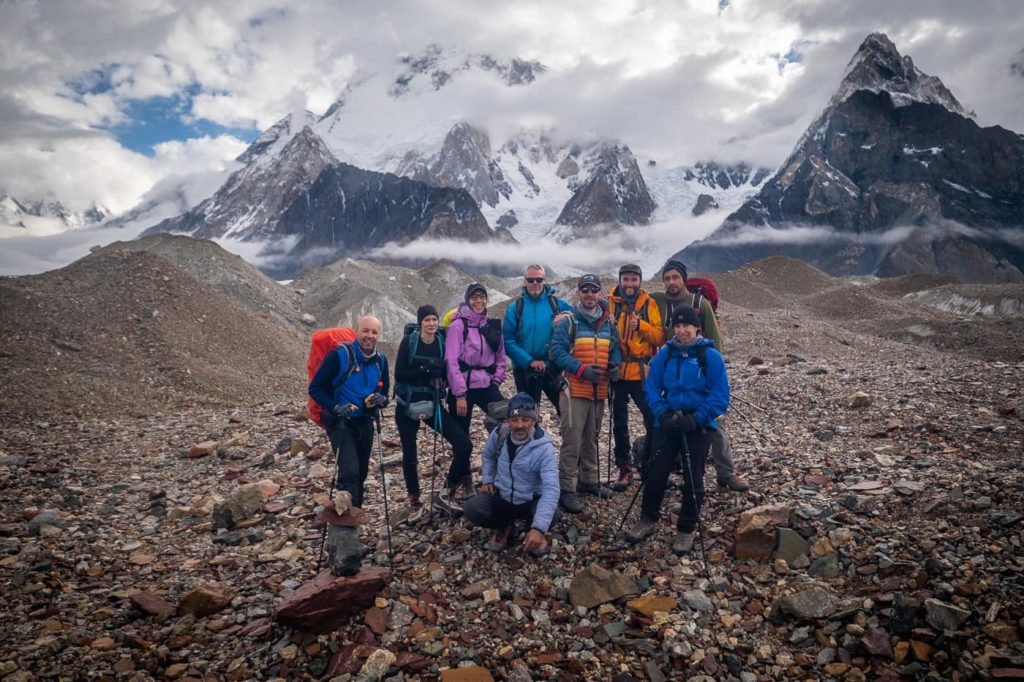
How are the Roads in Pakistan? Are They Safe?
Pakistan has many modern roads including a highway system linking major cities.
It also had many roads that are basically dirt jeep tracks. Such roads are constantly plagued by landslides and the tough environmental conditions found in the mountains.
Generally speaking, the roads in Pakistan are safe (but traffic can sometimes be nuts) – but it should be expected that delays can often happen in the mountains if there has been a landslide or road blockage.
It is important to monitor weather conditions and never be on exposed mountain roads during heavy rain when landslides are most likely to occur.
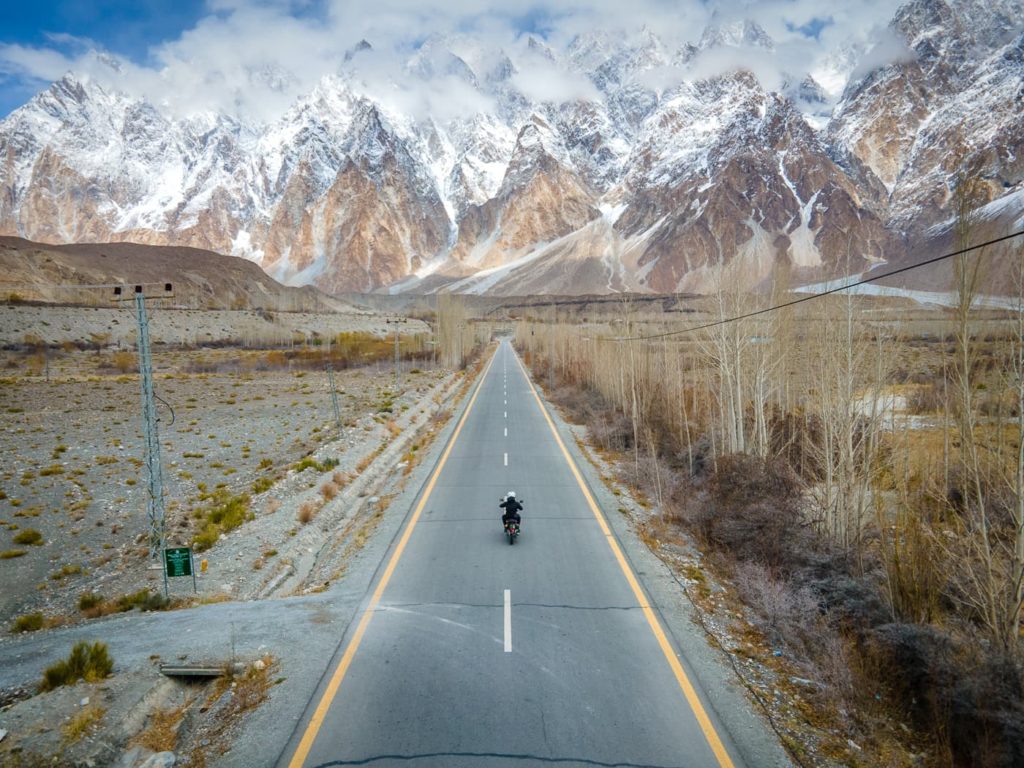
Is Pakistan Safe for Non-Muslims?
Another misconception the west has about Pakistan is that it is a strict Islamic Theocracy.
While it is true that Islam – the dominant religion in Pakistan – has a major influence on the culture and society within the country – Islamic laws are not enforced as they are in Iran, etc.
Women are not required (by law) to wear head coverings or hijab, women can drive, and it is not illegal to “date” as it is in other theocratic-authoritarian regimes.
Most Pakistani folks are extremely tolerant of other religions and it should never present an issue for foreign travelers exploring the country as non-muslims.
As in any country, it is important to observe local customs of modesty as well as being respectful when visiting historical/religious sites.
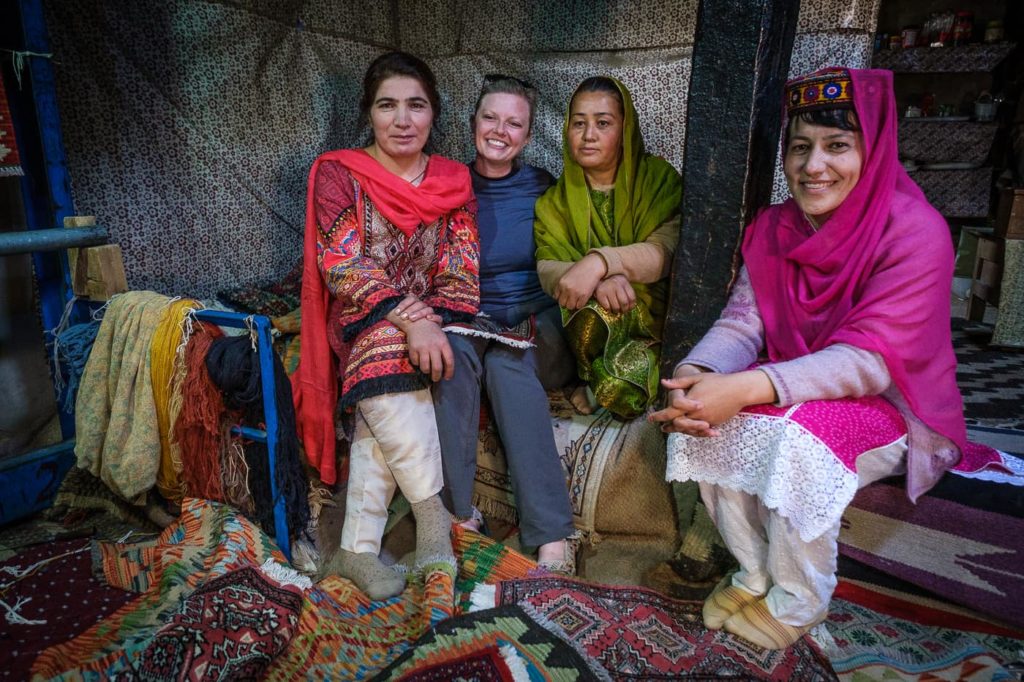
Is Pakistan Safe for Carrying Lots of Cash Around?
Pakistan is a cash-based economy. 99% of the time, you need to pay for things on the ground in cash. This means – you guessed it – you need to always be carrying cash around with you.
Despite the fact that per capita Pakistan is a very low-income country by Western standards, we have always found the people very honest. Pick-pocket crime is pretty unheard of as it is a huge cultural taboo to steal in Islamic culture.
Use common sense. Don’t flash wads of cash when you got to pay for something. When you go out to eat, there is no need to carry more than $50 in local currency with you.
In hotels, store your valuables in your luggage or elsewhere out of view.
But if you happen to be moving around with a large amount of cash on you, there is truly no need to worry about getting robbed – the chances of this happening to you are very, very low indeed.
Having basic street smarts in large cities and on public transportation will go a long way in keeping your cash safe.
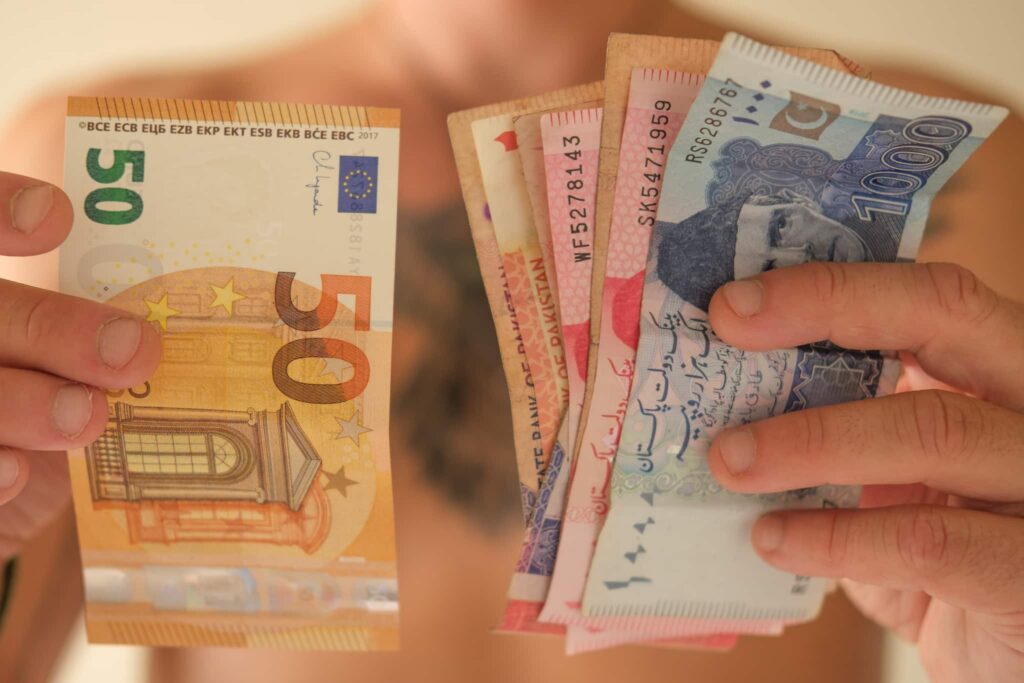
What About Political Turmoil in Pakistan?
Pakistani politics can get heated, really heated.
Allegations of corruption, gross mismanagement, general incompetence, and generational political rivalries all come together to make the political situation in Pakistan an ever-evolving spectacle to behold for outsiders.
In the spring of 2023, there were large-scale protests caused by the arrest of former prime minister Imran Khan on corruption charges.
These events were destabilizing for the cities they occurred in and have resulted in a generally divided Pakistan split between supporters of Mr. Khan and those who think he is a corrupt dude who should be charged.
Should political unrest occur before or during your tip in Pakistan, follow these tips for staying safe:
- Avoid large crowds or parts of a large city where there might be government or police buildings.
- Avoid talking to strangers about politics. Keep the conversation light.
- Follow the international news and stay informed.
- Avoid going to any protests yourself.
- Go trekking! Because in the mountains there are no political protests.
- Do not panic. Often protests are isolated events that do not last more than a few days at most and are concentrated in very specific parts of a city.
- Come to Pakistan with an open mind and use your intelligence to keep you out of potentially unsafe environments (like crowds and large protests).
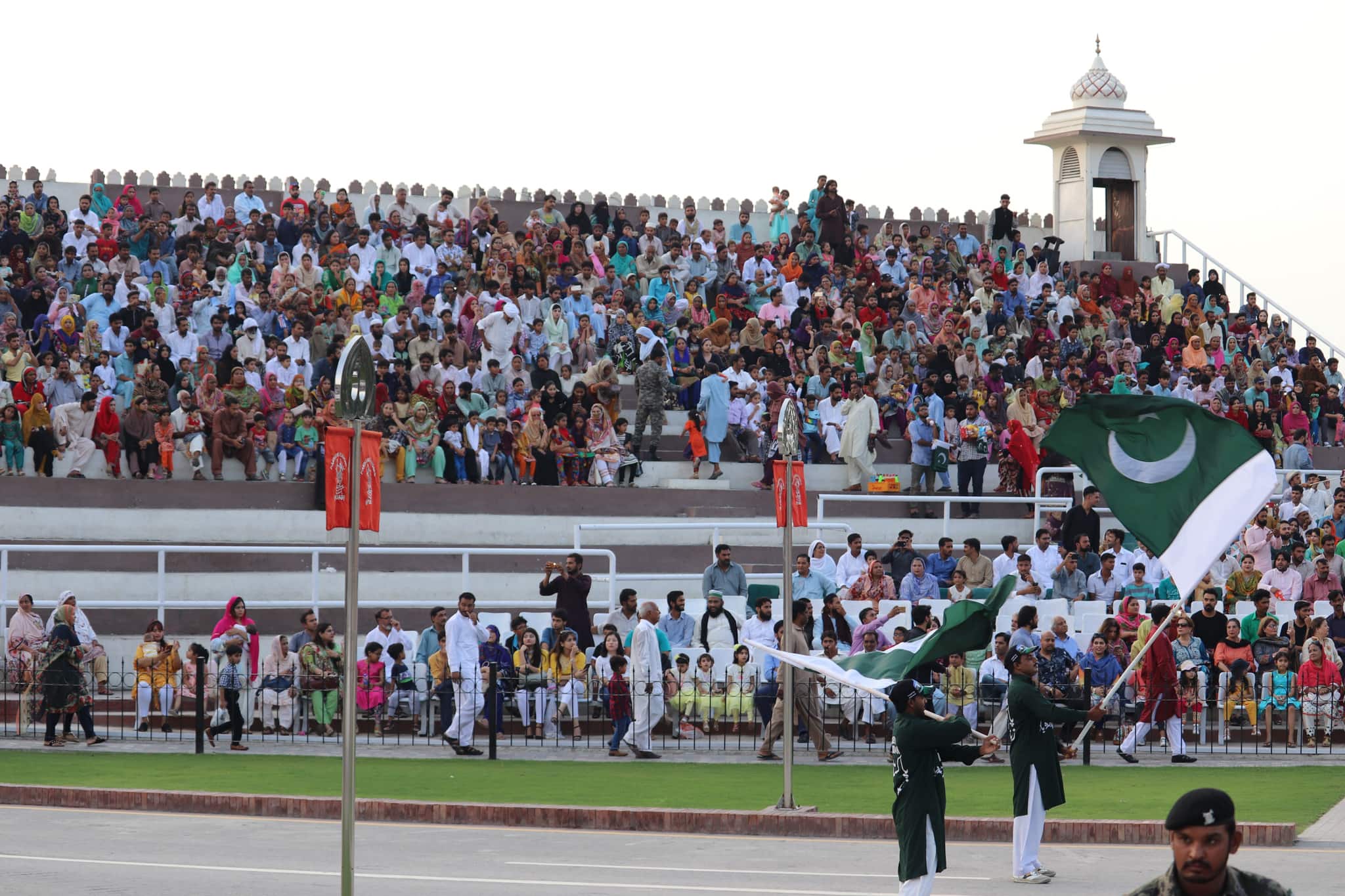
Is the Drinking Water Safe in Pakistan?
No, it is not. Anywhere you go in Pakistan with the exception of some remote mountain villages (and even then it is a risk), the water is not safe to drink. A quick way to enter a state of suffering is to drink tap water in Pakistan.
So how do you drink water on a daily basis without needing to buy bottled water all the time?
Our entire staff and most of our clients use a Grayl Geopress.
This handy bottle allows you to purify water from any source, including the hotel sink in Lahore and the mountain stream near K2 Base Camp.
Pack a Grayl, buy less plastic bottled water, and keep yourself safe all in one go.
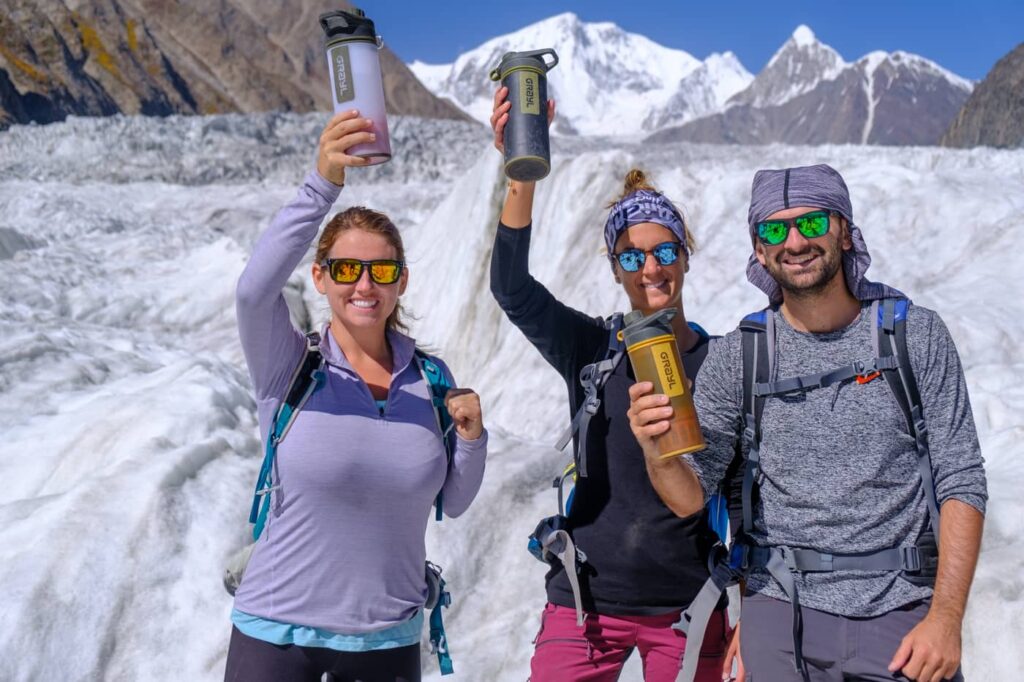
Get the Right Travel Insurance for Pakistan
In case of personal injury, severe illness, lost luggage, or many of other misfortunes that can occur while traveling, it is important to have the right travel insurance.
If you are planning on doing any high-altitude trekking, you need to check the policy closely to ensure that high altitude is not hidden in the fine print under exclusions.
We recommend Global Rescue for both travel insurance and high-altitude trekking insurance.
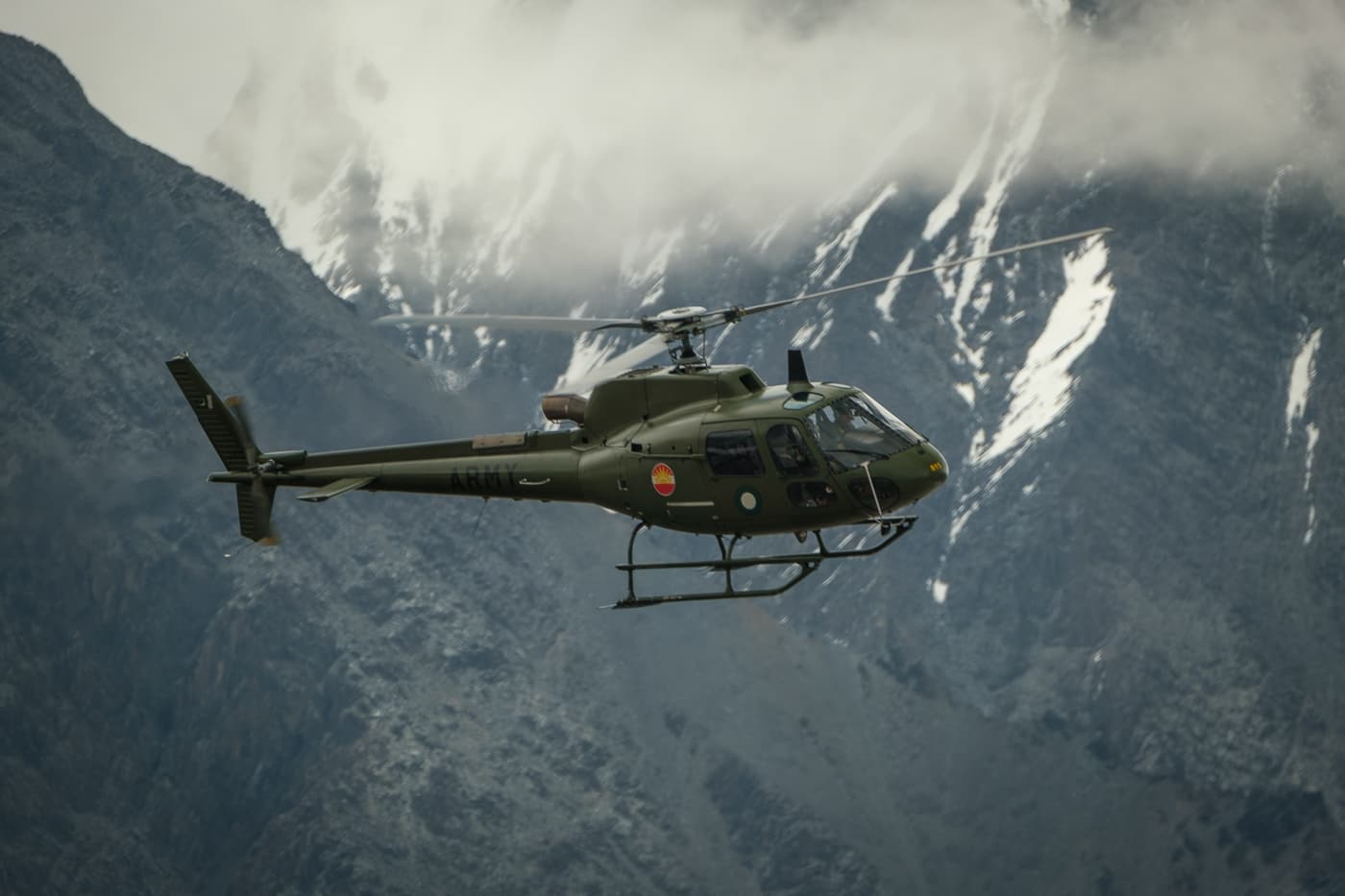
Wrap Up: Is Pakistan Safe?
Pakistan is our favorite destination for a reason. Its mountains are epic, the people super friendly, the food is tasty, and the travel raw and uncorrupted by mass tourism.
So, is Pakistan safe? We sure think so – and based on our years of experience exploring all over the country, our past clients can tell you the same thing.
If you are thinking about joining us for a trip in Pakistan but have concerns about safety, hopefully, this article has given you some peace of mind while also providing you with some helpful tips on how to stay safe in this adventure paradise.
If you still having any questions or you are asking yourself “is Pakistan safe?” book in a call with one of our adventure specialists so we can go over this topic with you in greater detail.
